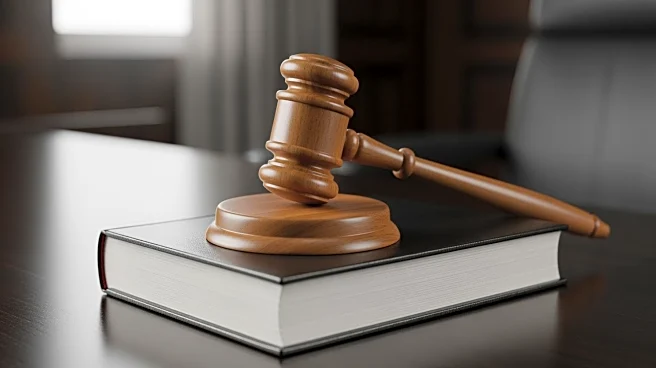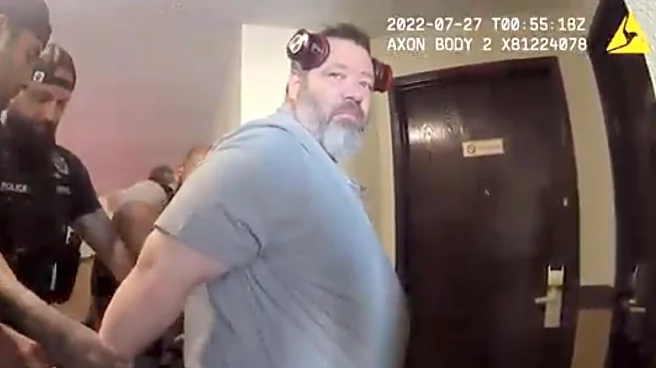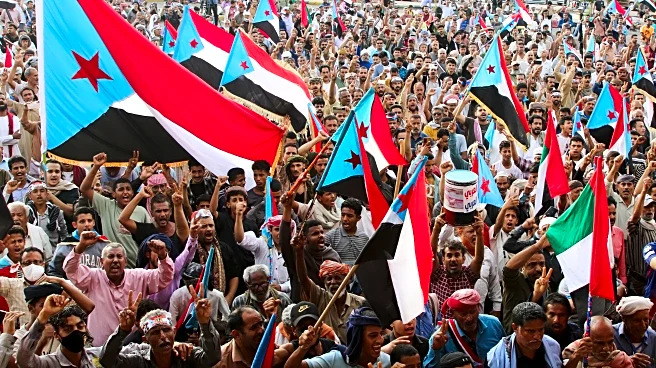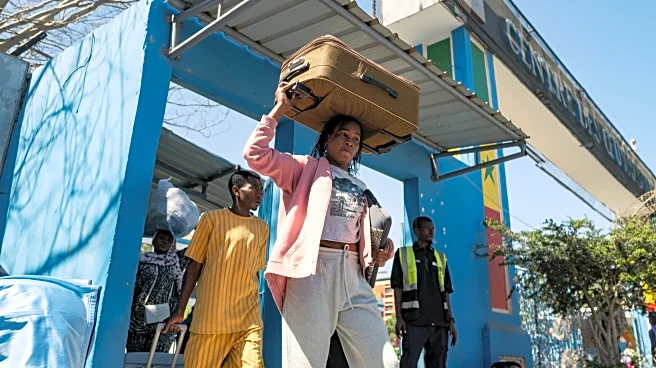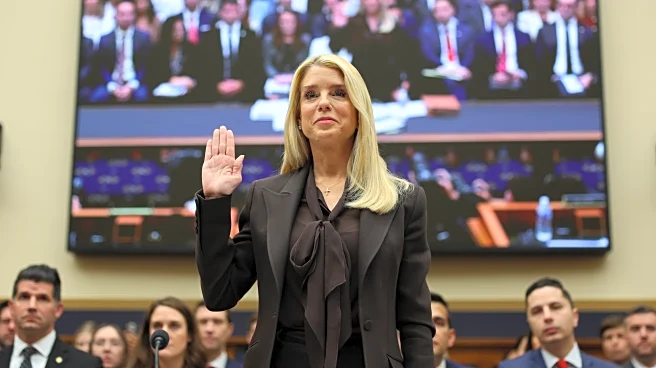What's Happening?
The Georgia election interference case against President Trump and others has been handed over to a new prosecutor, Pete Skandalakis, following the removal of Fulton County District Attorney Fani Willis
due to an 'appearance of impropriety.' Willis was removed after a romantic relationship with the special prosecutor she appointed to lead the case. Skandalakis, the Executive Director of the Prosecuting Attorneys’ Council of Georgia, decided to handle the case himself after failing to find another willing prosecutor. The indictment, returned by a grand jury in August 2023, accuses Trump and 18 others of conspiring to overturn Trump's loss to Joe Biden in Georgia during the 2020 election using the state's anti-racketeering law.
Why It's Important?
This development is significant as it impacts the legal proceedings against President Trump and others involved in the alleged election interference. The case's outcome could have profound implications for U.S. politics, particularly regarding election integrity and accountability. The decision by Skandalakis to take over the case ensures that the legal process continues, potentially affecting public trust in the judicial system. The case also highlights the challenges of prosecuting high-profile political figures and the complexities involved in handling such sensitive legal matters.
What's Next?
Skandalakis will review the extensive case file, which includes 101 boxes of documents and an eight-terabyte hard drive, to determine the next steps. A status hearing is scheduled for December 1, where the prosecution must indicate whether it intends to seek a new indictment. Skandalakis faces the challenge of managing a large and complex case with limited resources, as the Prosecuting Attorneys’ Council operates on a tight budget. The state legislature, dominated by Republicans loyal to Trump, is unlikely to provide additional funding, forcing Skandalakis to seek alternative financial support for the prosecution.
Beyond the Headlines
The case underscores the ethical and legal challenges in prosecuting political figures, especially when personal relationships and political affiliations come into play. It raises questions about the impartiality of the judicial process and the influence of political dynamics on legal proceedings. The handling of this case could set precedents for future prosecutions involving high-profile individuals and test the resilience of legal institutions in maintaining fairness and transparency.
